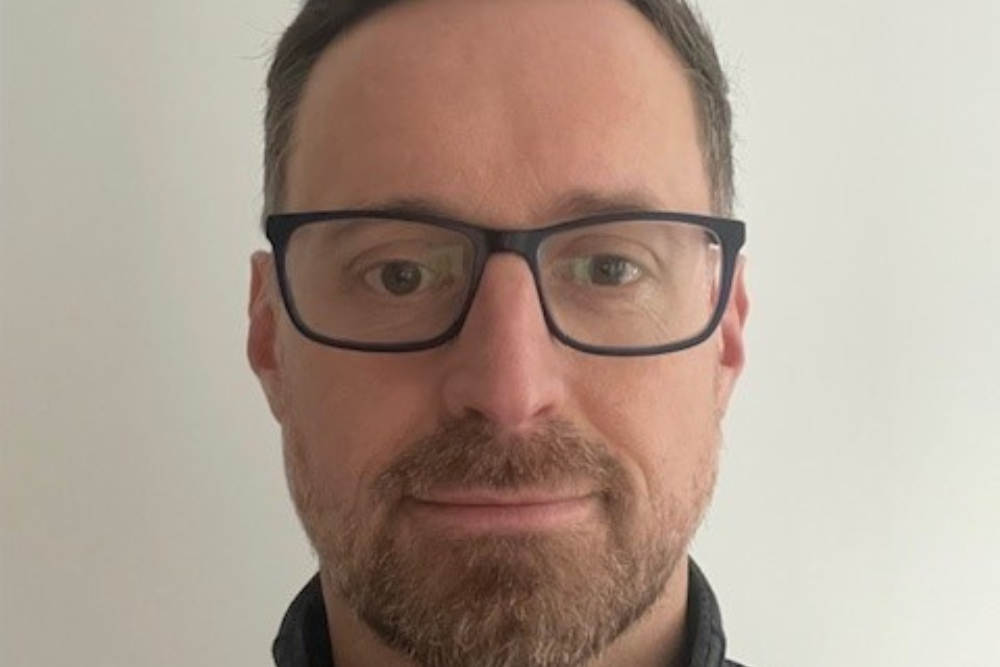Lorem ipsum dolor sit amet, consectetur adipiscing elit. Curabitur eleifend tortor nec augue pretium


On the one hand, you could be left tens of thousands of pounds in student debt, while on the other, you face missing out on all the unique experiences that universities have to offer.
Degree apprenticeships offer an alternative to this binary choice, and give school leavers the opportunity to gain a paid-for degree while getting industry experience and earning a salary at the same time.
“Apprentices get their tuition paid, so that’s a big attraction, but they also get practical experience with the employer and theoretical experience with the university,” explains Dr Kerry Brown, academic lead for Kingston University's environmental practitioner course. “Essentially, they get the best of both worlds.”
Students can gain a full undergraduate or master’s degree with these type of apprenticeships – which typically take three to six years to complete – with roughly 20% of the time spent studying, and 80% working.
Indeed, the latest government apprenticeship and trainee figures show that 50,110 apprentices started degree apprenticeships to bachelor’s (Level 6) and master’s (Level 7) standards in England during 2023/24, which is a 7% increase on the previous year.
Furthermore, the range of apprenticeships on offer is growing all the time, particularly in the environment and sustainability space after six green apprenticeships were picked to mark the King’s Coronation in recognition of their sustainability credentials.
People of all ages can apply in the same way you would for a normal job, with employers such as WSP, Atkins, Rolls-Royce, and many more advertising degree apprenticeships throughout the year, which you can search for here, and of which some are IEMA accredited.
“Depending on their employer, successful applicants will do a vast array of things, whether it be environmental impact assessments, policy framework analysis, noise pollution detection, vegetation survey analysis, and so on," Brown continues.
“However, they can be quite challenging, because it’s difficult to juggle university as well as employment, but if they are happy to deal with those challenges, they will gain an unimaginable amount of experience.
“If nothing else, it tells them whether they want to remain in that sector or not, so I would encourage anyone who's interested to look into them further, because ours is a wonderful, wonderful programme.”

How did you find out about the degree apprenticeship, and why did you apply?
I took a year out post-college, and came across an advert on the Environment Agency website for the degree apprenticeship. I studied economics and geography at A-level, and recognise that a thriving economy and sustainability go hand in hand, so it was a good fit.
The big benefit as well, which can't be overstated, is it's a fully funded degree. You get paid to do the degree and don't come out with any student debt, as well as getting career progression opportunities and five years of experience in the sector.
So you are in your final year?
I’ve joked for a while that I’m in my final year, but don’t finish till the summer of 2026. I’m in my final year of studying, but with these degree apprenticeships you have an end-point assessment period, and a work-based project that will then finish in the sixth year. My manager keeps getting excited that I'll be finishing studies, but I have to remind them that I'm not quite finished yet.
How have you found it?
I’ve thoroughly enjoyed my time on the apprenticeship blending working and learning. It was around 2022 that I was learning about water resources on one module, and then the next week I was in a meeting at the Environment Agency discussing drought in an area, so that's just one example where you're in the classroom one day, and then in a real-world situation putting knowledge into practice.
Particular highlights have included a Cornwall trip back in the second year, which was a good introduction to some basic geography skills and working in teams out on the field. In November 2023 we also went to Tenerife, where we studied the impacts of climate change on a particular tree species.
What are the drawbacks?
You're part of a cohort with normal students, but then the next week or next day you're back in the workplace – the constant transition can be challenging at times, but it's nothing that can't be overcome. For some people, the length of the course can be a challenge, because it’s quite a commitment to dedicate the next five years or so of your life to it.
Any advice for others considering degree apprenticeships?
You need good time management, planning, and communication skills, because if you're not on top of your studies, workplace responsibilities can make it challenging to find time to catch up. By doing a degree apprenticeship, both parties are set to gain in the fact that your employer is getting a skilled individual and you're getting a degree. That's a really good thing to remember.
How did you find out about the degree apprenticeship, and why did you apply?
I've been in telecoms for 12 years and I'm 41 now, so not early on in my career, but a colleague of mine at Gamma Telecoms was aligning our staff with training courses, and realised I would be eligible for the degree apprenticeship because I was early on in my career in sustainability, having only become an ESG programme manager last March.

I scratched my head for a couple of weeks and thought it would be a good thing to do; it would be the first professional qualification I’d done in years, it would certify my knowledge and experience on the job, as well as give me some structure and personal development. Plus it’s all funded through the Apprenticeship Levy.
Were you surprised you were eligible?
It was something I just hadn't considered before. I'm one of the older ones, but there's probably three or four people of a cohort of 24 that are older than me, then there's a chunk of people in their 30s and below. So there's a real mixed bag, and actually that’s what creates a really interesting and engaging learning environment when we get together, because you've just got such a breadth of perspectives on life and experiences that you can learn from. They're also from completely different industries., so I'm meeting people in the finance sector, food, manufacturing, local council, healthcare, and so on. One of the richest parts of the course is talking and learning from each other – it’s brilliant.
What have you learnt?
The content is really applicable to what I’ve been doing at my job, such as learning how to measure and calculate emissions data, which was in module one. Module two is about how to implement sustainable change in an organisation, then the next one is on regulation and legislation. There is also finance, and evaluating global operations before we go into the end-point assessment. It’s great that you can delve into the academic world for one day of the week and then the real world the next.
What are some of the other highlights?
We had a tour of Teesside’s Net Zero Industry Innovation Center, which was really interesting seeing all the technology and research going on there. We also got together in London, and met the guest lecturer throughout the second module, who was responsible for delivering the electric buses initiative in London and had a lot of arms to twist, so it was great learning from his experience in change management.
Any advice for others considering degree apprenticeships?
When I did my first degree back in 2006 I thought, ‘right, that's it, I'm done’, so my message would be don't ever rule it out, because had I just been stubborn and stuck to my guns without doing another degree I would have lost out on a load of really rich engagement, and hopefully a lot of doors opening in the future. So never say never.

How did you find out about the apprenticeship?
Although the course isn't a degree apprenticeship, it is a Level 4 apprenticeship qualification and is equivalent to the foundation year of university. It is one of the green apprenticeships hand-picked by industry experts to celebrate the King’s Coronation for its sustainability credentials. I was already working at Lloyds Banking Group, and after having development conversations we saw this opportunity, and I was really keen to apply and my employer encouraged me to go for it.
Why were you so attracted to the course?
It covers a broad range of environmental sustainability, as well as social sustainability. I previously obtained a degree in criminology and sociology, so social purpose has always been a really big driver for me and purpose-focused roles, which is why I joined Lloyds Banking Group. I always had that purpose-led lens in my career, and the course was a really good fit for me to have a positive social impact.
How have you found it?
It's been incredible undertaking this apprenticeship, and I’ve had great support from both my employer and the university. I can actively apply the skills I've learnt back into my organisation, such as supporting to deliver our social sustainability strategy to help break down socio-economic barriers impacting the UK’s under-served business communities.
It's also allowed me to broaden my network and get to know the cohort as well, which has been amazing. I think that's really important, because nobody can do this alone, in terms of driving impactful, meaningful change. Collective action is needed, and apprenticeships such as this one really help facilitate that discussion and help you form a network.
Is it mostly online?
There are virtual sessions, but we also tend to have around two days face to face per quarter, so it's a nice balance. It works for me personally to have that mix of virtual lectures because it gives me that flexibility to build that around my work and life. We still get that great opportunity to see our cohort and touch base throughout the year so you have that networking opportunity and get to know people. The cohort is made up of people from a variety of sectors and experiences, all at different stages in their careers.
Any advice for others considering degree apprenticeships?
I would just say, do it, because it's an amazing opportunity, not only to get to know a new network of people, but you really get an opportunity to attain knowledge and experience that you may not get the chance to do otherwise.
Learn more:
Environmental Science BSc (Hons) Degree Apprenticeship programme - Kingston University London
Image credit: Shutterstock